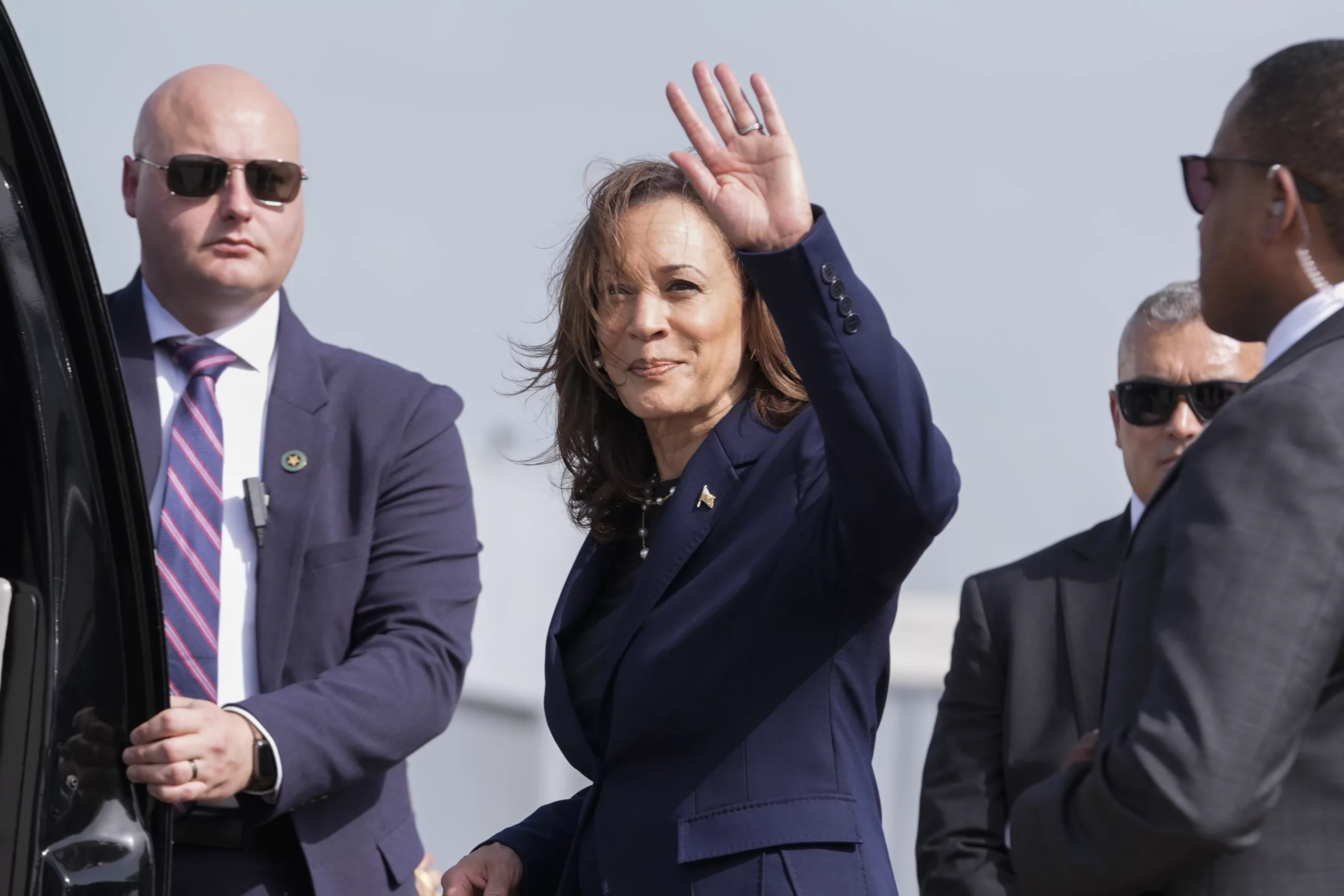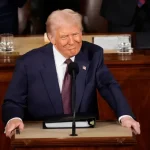
In 1984, Vice President Kamala Harris, a then-Howard University student, scored an internship during her sophomore year for Alan Cranston, a Democrat who represented California in the Senate for over two decades. Harris thinks back fondly of her time in Cranston’s office.
“I loved going to work — it felt like the epicenter of change, even as an intern sorting mail,” Harris, who graduated from Howard in 1986, once said — later touting how she “believed the Senate was a place to turn activism into action.”
For Cranston, the Senate was where the California Democrat got wrapped up in a major fundraising scandal that earned him a reprimand from the Ethics Committee and, according to the New York Times in 1991, “destroyed his political career.”
“I never dreamed that one day I would hold that same office,” Harris said in January 2021 upon resigning her Senate seat and becoming vice president under President Joe Biden.
The story of how Cranston linked himself to the so-called “Keating Five Scandal” could come back under the national spotlight as his former intern, Harris, runs for president in 2024. Harris became the presumptive Democratic presidential nominee after Biden, 81, announced he would not seek reelection following Democratic pressure on him to pass the torch to the next generation. Former President Donald Trump, the Republican presidential nominee, leads Harris by roughly 1 point, according to a RealClearPolitics polling average.
At Howard, a historically black college located in Washington, D.C., Harris was a political science and economics major. Aside from her yearbook photo and scant information about being involved with the Alpha Kappa Alpha Sorority, a Howard library archives employee told the Washington Examiner “there is no ‘Kamala Harris’ file readily accessible” for public viewing in connection to her time at the college.
“At first glance, there are no articles in the student newspaper written by her,” said Aaron Jacobs, the program coordinator for Howard’s Moorland-Spingarn Research Center. “Regarding papers she wrote for classes or professors, those are not information we keep or distribute.”
As a Howard student and Senate intern, Harris was told by Cranston to “make as many friends as you can on the way up” since “you’ll need them on the way down,” advice that stuck with Harris over the years, Roll Call reported in 2016.
Cranston, who died in 2000, was notably found by the Senate Ethics Committee in 1991 to have engaged in “impermissible conduct” after being accused of pressuring the since-dissolved Federal Home Loan Bank Board to expedite an investigation into one of Cranston’s donors — and save his companies from collapse.
The donor, Charles Keating, transferred over a million dollars to senators, including Cranston, in addition to paying for group trips to the Bahamas and stays at luxury resort hotels, according to archived Senate records. Keating ran the California-based Lincoln Savings and Loan Association, which failed in 1989. The government bailout cost taxpayers $3 billion and left tens of thousands of depositors with worthless junk bonds — a defining moment of the savings and loan crisis that unfolded in the late 1980s.
Keating, who died in 2014, would plead guilty to fraud charges and head to prison for four and a half years. And Cranston’s ties to the banker would be an embarrassment that, today, overshadows his political legacy.

Dubbed by CQ Almanac in 1991 as one “of the most divisive ethics cases in the history of the Senate,” Cranston had announced just before the hearings began in 1990 that he would retire due to health problems.
Harris’s former boss, while speaking on the Senate floor about his efforts to benefit his donor, insisted in 1991 that he had “deep remorse in my heart.” But he stopped short of fully acknowledging any wrongdoing.
“You are in jeopardy if you ever do anything at any time to help a contributor — no matter how worthy the cause, no matter how proper the need for help, and no matter how proper the help you render,” Cranston said during a 30-minute speech on the Senate floor. “I stand before you as an illustration of that jeopardy.”
Warren B. Rudman, a Republican senator who was vice chairman of the Ethics Committee, leapt to his feet after Cranston’s statement — calling it “arrogant, unrepentant, and a smear on this institution.”
“Who would have known, so many years later, I would actually run the office where I was once a student watching the incredible work a senator can do,” Harris said in 2021.
In turn, similar to other lawmakers, Harris took on her own interns over the years as she rose through the ranks of power. Terry McAteer, the father of one of Harris’s former interns while she was California’s attorney general, wrote a scathing op-ed in 2019 about his son’s experience, one that is coming back under the spotlight as Harris seeks the White House.
Harris, according to McAteer, used “profanity constantly in her berating of staff and others” and gave instructions to his son and other interns “to never address Harris nor look her in the eye.”
CLICK HERE TO READ MORE FROM THE WASHINGTON EXAMINER
“I don’t know about you, but this is not the workplace of someone who respects her staff,” McAteer said. “For a woman of color to have employees stand when she enters the room smacks of a bygone era that we, as Americans, deplore and find demeaning.”
Harris’s office did not return a request for comment.





